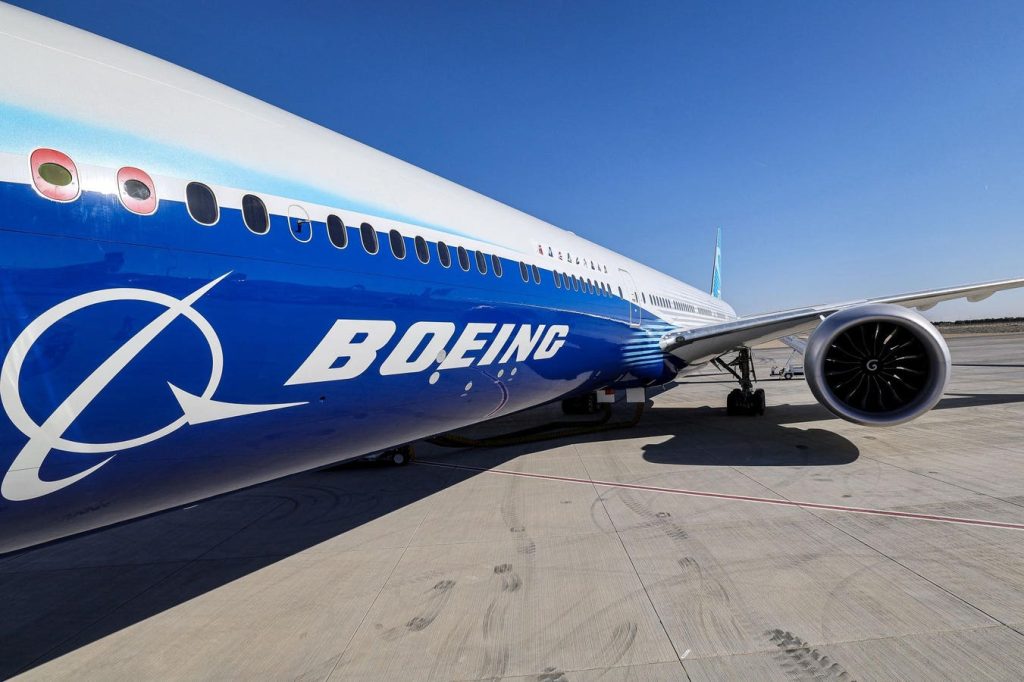Boeing Faces Turbulent Skies: Activist Investors and Warren Buffett Circle the Aerospace Giant
Boeing, a cornerstone of the global aerospace industry, finds itself navigating challenging headwinds. A series of financial and operational setbacks have significantly impacted the company’s performance and reputation. The grounding of the 737 MAX aircraft following two tragic accidents, coupled with production delays and technical issues across other models, has eroded public trust and inflicted substantial financial losses. The COVID-19 pandemic further exacerbated Boeing’s woes, as plummeting air travel demand led to order cancellations and deferrals, impacting the company’s cash flow and revenue streams. These combined challenges have not only depressed Boeing’s stock price but also created an opportunity for competitors like Airbus to gain market share. The company faces a critical juncture, demanding a strategic overhaul to regain investor confidence and ensure its long-term viability in a rapidly evolving global market.
Adding to the complexity of Boeing’s situation is the growing interest from activist investors. These shareholders leverage their ownership stakes to influence a company’s strategic direction and management. Unlike passive investors, activists actively seek to transform the companies they invest in, aiming to unlock what they perceive as untapped potential and maximize shareholder value. Their tactics can range from pushing for divestitures and management changes to advocating for operational restructuring and influencing corporate policies. The involvement of activist investors often signals a belief that a company is underperforming relative to its intrinsic value, paving the way for significant corporate changes. Notable examples of activist investor involvement include Elliott Management’s engagement with AT&T, resulting in strategic shifts and divestitures, and Starboard Value’s role in Yahoo’s revitalization, driving strategic changes and operational improvements that ultimately boosted the company’s market value.
The potential entry of Warren Buffett into the Boeing saga further intensifies the situation. While Buffett is renowned for his long-term investment approach, focusing on companies with strong fundamentals and consistent cash flows, his interest in Boeing may signal a unique opportunity for value creation through strategic change. This convergence of activist investors and a potential Buffett investment could herald a significant transformation for Boeing, potentially encompassing both governance reforms and strategic realignment, aiming to enhance the company’s market position and operational efficiency.
Warren Buffett’s investment philosophy centers on acquiring companies with durable competitive advantages, often referred to as "moats," at prices below their intrinsic value. He favors businesses with sound business models, long-term growth prospects, consistent earnings power, and competent management. This rigorous approach prioritizes long-term value creation over short-term gains. Boeing, despite its recent challenges, remains a dominant player in the aerospace industry, a sector characterized by high barriers to entry and the potential for long-term competitive advantages. Buffett’s potential interest in Boeing suggests he may view the current market valuation as an undervaluation of the company’s intrinsic worth, recognizing a potential turnaround opportunity aligned with his strategy of investing in strong companies during periods of temporary weakness. This aligns with his historical pattern of acquiring high-quality businesses at a discount, capitalizing on short-term market dislocations affecting large corporations.
The combined influence of activist investors and a potential Buffett investment could lead to several transformative scenarios for Boeing. Activists might push for significant changes, including leadership transitions, strategic pivots, or comprehensive financial restructuring. They could also advocate for separating Boeing’s various divisions, such as spinning off the commercial aviation segment from its defense, space, and security businesses, to unlock hidden value and allow each entity to optimize its operations and market strategies. This approach is often favored in complex conglomerates. While Buffett’s approach might differ from that of activist investors, his influence could be equally profound. Known for empowering existing management teams, he may focus on shaping the company’s strategic direction by advocating for improved capital allocation aligned with Boeing’s core strengths in aircraft manufacturing and streamlining operational processes.
The implications of these potential developments extend beyond Boeing, impacting the wider aerospace sector and potentially influencing corporate governance practices in other industries. Boeing’s response to activist pressure could trigger a wave of restructuring and innovation across the aerospace industry, as competitors adapt to the changing landscape. Suppliers might face new opportunities and challenges as Boeing’s requirements and processes evolve, while customers, including airlines and defense agencies, could benefit from improved products and services stemming from a more agile and focused Boeing. Furthermore, Boeing’s engagement with activist investors could inspire greater shareholder activism in traditionally conservative industrial sectors, potentially ushering in an era of enhanced governance and strategic clarity within the aerospace and defense industries. The confluence of activist investors and potential Buffett involvement marks a pivotal moment for Boeing, underscoring the need for strategic agility and robust governance to navigate the transformative changes ahead. These developments hold significant implications for investors and the broader global market, warranting close attention to Boeing’s strategic decisions in the coming months.


